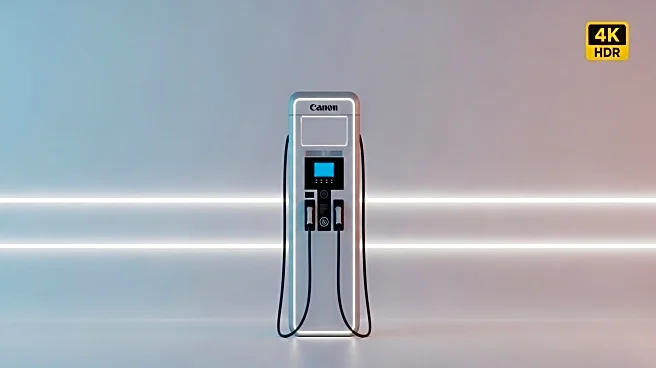What is the story about?
What's Happening?
Ford has announced that it will continue offering discounted leases on its electric vehicles through December, but it will no longer claim the $7,500 federal tax credit. This decision aligns Ford with General Motors, which has also opted to cancel the extension of this credit. The move comes as both automakers adjust their strategies in response to evolving market conditions and federal policies. The $7,500 tax credit was initially designed to incentivize consumers to lease electric vehicles by reducing the overall cost. However, Ford's decision to discontinue the credit extension suggests a shift in focus towards other promotional strategies or pricing models to maintain competitiveness in the electric vehicle market.
Why It's Important?
The cancellation of the $7,500 EV lease credit extension by Ford and GM is significant as it may affect consumer decisions regarding electric vehicle leasing. The federal tax credit has been a crucial factor in making electric vehicles more affordable and attractive to consumers. Without this credit, the cost of leasing an electric vehicle could increase, potentially slowing the adoption rate of EVs. This decision could impact the broader push towards sustainable transportation and the automotive industry's efforts to reduce carbon emissions. Automakers may need to explore alternative incentives or adjust pricing strategies to continue promoting electric vehicle adoption.
What's Next?
Ford's decision to cancel the EV lease credit extension may prompt other automakers to reassess their leasing strategies and promotional offers. As the industry adapts to changing federal policies and market dynamics, companies might explore new incentives or pricing models to attract consumers. Additionally, this move could lead to increased competition among automakers to offer the most appealing leasing options for electric vehicles. Stakeholders, including environmental groups and policymakers, may also respond by advocating for new or revised incentives to support the transition to electric vehicles.
Beyond the Headlines
The decision to cancel the EV lease credit extension raises questions about the long-term strategies of automakers in the electric vehicle market. It highlights the challenges companies face in balancing profitability with sustainability goals. This development may also influence consumer perceptions of electric vehicles, potentially affecting demand and market growth. As automakers navigate these complexities, the industry may see shifts in investment priorities, technological advancements, and collaborations aimed at enhancing the appeal and accessibility of electric vehicles.
















